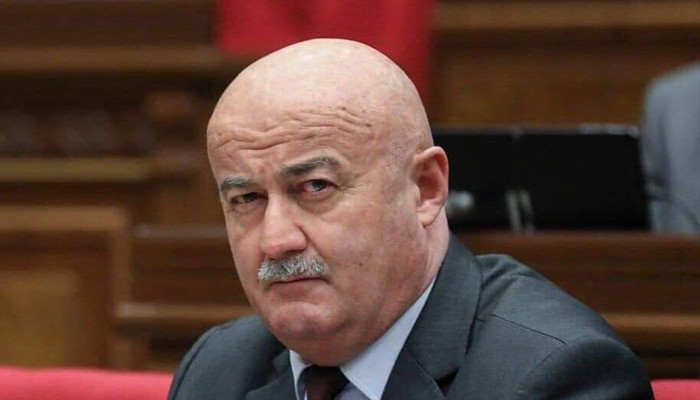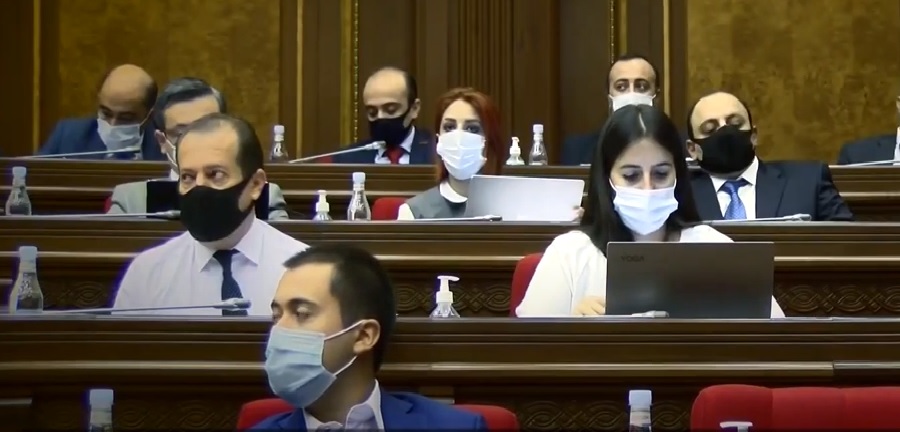The events taking place at the Administrative Court of Armenia on September 27, 2011, resembled a farce. Although the announcement of the court’s decision on the case “CPFE vs. NCTR” had been scheduled for that day, the judge, Karine Baghdasaryan, didn’t appear at the court. The representatives of the plaintiff and the respondent were given the decision in the corridor of the court, according to which, the demand of the CPFE to recognize the actions of the NCTR illegal and to obligate the committee to provide the required information entirely, was rejected.
The CPFE intends to appeal the decision in the Court of Appeals of Armenia and, in case of necessity, even in other instances. The basis for this is not only the violation of the procedural norms but also the tendentiousness and partiality of the court during the examination of the facts and arguments.
This case was initiated on February 21, 2011, when the CPFE turned to the NCTR with an official claim demanding copies of the applications and attached documents submitted for the auction of broadcasting licensing in 2010, as well as the correspondence with the appropriate organizations concerning the auction. The NCTR responded that it was ready to provide the necessary documents except from those, which contained trade secret. When in its next letter the CPFE asked to specify what particular trade secret the NCTR was talking about, the latter answered: the rebroadcasting agreements (according to the NCTR the rebroadcasting agreements are not supposed to be published without the agreement of the parties). In addition to this the NCTR refused to provide the copies of CV-s of the companies’ employees, saying that they contained privacy.
As the CPFE was going to make expert conclusions on the creative, financial, economic and technical competence of TV companies, as well as on the professional competence of the companies’ personnel proceeding from the applications and the attached documents, a claim to the Administrative Court of Armenia was filed demanding to obligate the NCTR to provide all the required documents. However, having held only two short hearings the Administrative Court rejected the claim.
It is worth mentioning that neither the requirements of the RA Law on “Television and Radio” concerning the transparency of the financing sources of the companies (article 20), as well as the provision of transparency of the committee’s functioning (article 37) nor the fact that the required documents had been introduced at the auction presentation in December 2010, had been taken into consideration. It means that the participants of the auction didn’t find that there was any secret. Besides this, the fact that there is no legal act, which considers a CV to be a secret document, has not been taken into consideration. Just vice versa, it is used widely to get informed about the education, professional experience and other skills of the specialist. The argument that the media field must be highly transparent and that the CVs of hundreds of journalists and experts are introduced in the official web site of Yerevan Press Club was not considered too.
In this case the logic of the Administrative Court is such: as the governmental body considers that the agreements contain trade secret and the CVs contain privacy, so taking into consideration the fact that seeking, usage and dissemination of such information is prohibited by law, the rejection of the NCTR to provide the required information is justified.
Meanwhile, the court didn’t even try to find out if there is really a trade secret in the required documents. The lawyer of the CPFE, Olga Safaryan states that the Administrative Court must demand the documents from the NCTR, check and analyze the facts and make sure of their authenticity. However, the court failed to take these steps. The decision was made just believing the respondent. This can be a very dangerous precedent, when even a CV can be considered to be a secret document.
Nevertheless, the court may not have thought about a negative precedent. But it maintained the negative tradition to reject all the claims filed against the National Committee on Television and Radio, even if the law is rudely broken, as it was in the case of “A1+” TV station.
Ashot Melikyan
Chairman of the CPFE








